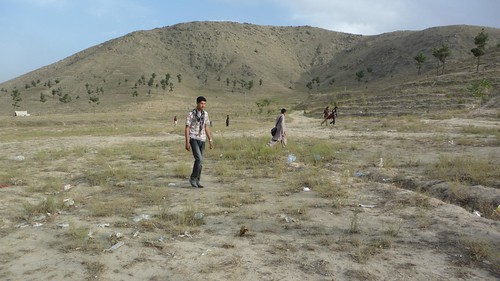
Afghanistan is a country of many ethnicities, tribes and languages, which many people can explain to you if you have the time to listen. But there is one language you don’t often read about that is spoken throughout Kabul and no doubt the nation. In café’s and restaurants, over lunch and late into the night after dinner, Afghans and foreigners alike, are speaking the language of war.
The language of war consists of words connected to violence and armed conflict, both in the present and the past tense. It is made up of the saddest and most terrifying stories; about murder, kidnapping, threats, moments of extreme panic, and people who have been lost to any of these. It is spoken by those who have been here for 5 years or 5 days, spoken while passing the rice or just passing time at a friend’s house. Beyond any of this, it is spoken with an ease and regularity that makes it one of the most widely spoken and understood languages in the nation.
I find history to be one of the most important and interesting topics one can discuss, no matter how exciting or mundane. I find personal experiences to be a constant source for learning and inspiration. Yet after almost one month listening the accounts of what it was like in what terrible situation, from both participants and observers, I find myself hating history and personal experience. Unable to listen to the language of war because something about it seems so bad for everyone in the conversation.
Surely there are import lessons to be learned from discussing these topics. Surely if our nations, our fellow humans, can carry out all the terrible actions of war, then we can confront them and not be afraid to examine these events among friends. Why should the language of war be considered taboo, when hiding the truth can only serve to keep us from learning lessons and not repeating mistakes.
While I know how important testimony and understanding are, especially in the context of war or violence, I am taken aback by the language of war. I want to stop the stories. I want to turn up the music. As strange as it may seem, the more the language of war is spoken, the less meaning it has to me, the previously outspoken citizen journalist.